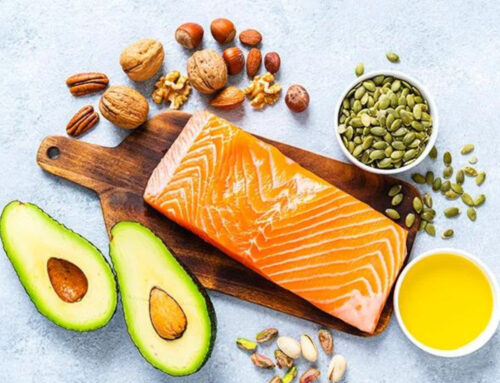For a lot of people who want to lose weight, fasting is easier to maintain than a normal low-calorie diet—and thanks to a new 2023 study, we have a better idea why.
The study’s research team, Saidpour et al., explored how fasting affected overweight women with food addiction. It turns out fasting helped reduce the uncontrollable urge to overeat, and the women who did daily fasting lost significantly more weight than the women who followed a normal low-calorie diet.
The study also measured various aspects of brain activity—and it revealed that fasting may actually rewire your brain in a way that breaks your addiction to food.
Here’s a closer look at the study, and at how you can use fasting to lose weight, make dieting easier, and improve your relationship with food.
What Is Food Addiction?
The study looks specifically at how fasting helps with food addiction, which is one of the most common obstacles people face when trying to lose weight.
For a lot of people, food can be addictive the same way drugs and alcohol are addictive. Food addiction is defined as a constant obsession with wanting to eat, thinking about food, overeating, and being unable to stop eating, even when it’s to the detriment of your health.
If you feel your relationship with food is out of control, you aren’t alone. A lot of people struggle with food addiction, and it’s one of the main reasons weight loss can be so hard, even when you desperately want to lose weight.
The good news is that fasting may be able to help.
Fasting Can Break Food Addiction and Help You Lose Weight
In a recent study, researchers assigned 56 overweight women to one of two groups. The first group followed a normal, low-calorie diet, eating throughout the day. The second group also followed a low-calorie diet, but they did 14/10 intermittent fasting, where they ate all their meals between 10 a.m. and 8 p.m.
Both groups followed their diets for eight weeks, and at the end of the experiment, both groups had lost weight—but there were a few notable differences in the intermittent fasting group.
First of all, the women who fasted lost about 25% more weight, which is in line with other studies that have compared fasting to normal dieting.
Another interesting change is that fasting led to significantly higher levels of brain-derived neurotrophic factor (BDNF). BDNF is a protein in the brain that helps grow new neural pathways. It’s important for learning and habit formation, and it also promotes higher cognitive functions like self-control, which can be helpful in changing your relationship with food[*].
And sure enough, a third difference between the fasting and normal diet groups was that women who fasted had more control over cravings and thought about food less. The researchers tested participants’ cognitive restriction score, which measures how hard it is to maintain self-control on a diet and avoid overeating. Those in the fasting group had a higher increase in their cognitive restriction score, suggesting that they had greater self-control around food than those on a normal diet.
To summarize: in overweight women who were addicted to food, fasting led to:
- More weight loss
- Greater self-control around food
- An easier time dieting
- Increased BDNF levels in the brain
Want to Lose Weight? Here’s How to Start Fasting Today
Fasting is a powerful tool for weight loss, and incredibly simple to do. It’s free, it doesn’t require any special tools, and it’s easy enough that you can start it right now.
My Beginner’s Guide to Fasting is a free course that will teach you everything you need to know about intermittent fasting. If you’re new to fasting, check it out. It’ll literally teach you how to start intermittent fasting in the next five minutes.
And fasting isn’t just good for weight loss. It will also enhance your brain function, energy levels, healthy aging, and a lot more. Give intermittent fasting a try—you’ll be amazed by how good it makes you feel.









Leave A Comment